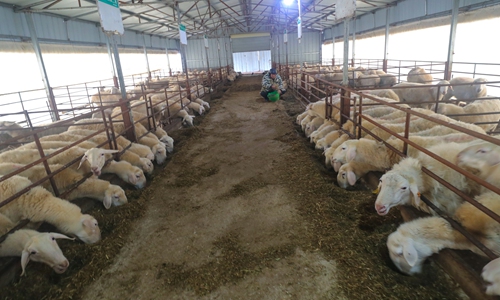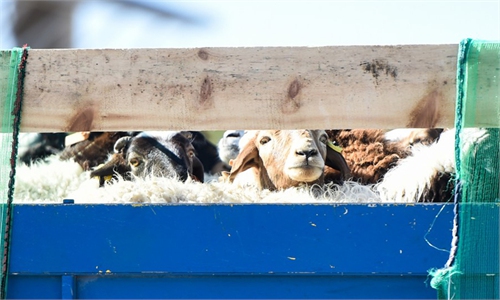
A breeder feeds Huyang sheep in Xinyang, Central China's Henan Province, on January 5. Photo: cnsphoto
The world's first myostatin gene (MSTN) edited Huyang sheep was born in China, with the technology being applied to boost the sheep's meat production capacity.Researchers at Jiangsu Academy of Agricultural Sciences have edited the MSTN, a negative regulator of muscle mass, of Huyang sheep, and have produced five sheep so far, Science and Technology Daily reported on Thursday.
Growth rates of two out of the five sheep are obviously higher, with their weights at two months 25 percent larger than that of normal Huyang sheep.
The Huyang sheep breed is unique for its high fertility rate and resistance to wet heat, the reason why it has been widely introduced across China's main sheep farming area.
However, the meat production capacity of Huyang sheep needs to improve where the gene editing technology could help with.
Over recent years, Chinese consumption of mutton increased year by year, but the mutton yield cannot satisfy the consumption demand. In 2019, Chinese consumption of mutton hit 5.27 million tons, higher than domestic mutton yield of 4.88 million tons, the report said.
Meanwhile, stricter environmental protection policy in China has led to some small and medium sized sheep growers exiting the market, meaning a breeding stock of sheep decline over recent years.

